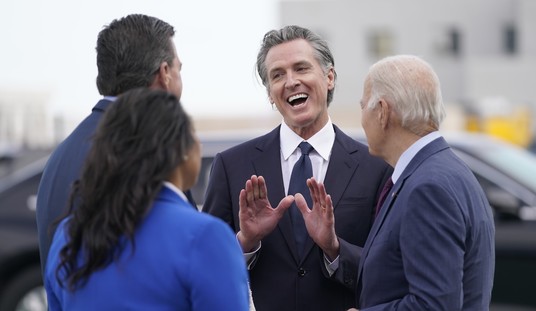San Francisco resident Mike Rowe of “Dirty Jobs” fame doesn’t often get political on his show or on social media, but he is an advocate of people being able to work in the field they choose – and in the manner they choose. On Labor Day he shared a lengthy post on his Facebook page about what “freelancing” is and how California politicians have “waged a war on work” with their anti-freelancing/gig work law, AB5.
Rowe himself has worked an amazing number of gig jobs – a thousand, by his count:
If you read my book, you know that I had a lot of gigs between my time in the Baltimore Opera, and my first appearance on Dirty Jobs. What you don’t know, and what I didn’t know until yesterday, are the total number of gigs I had along the way. According to a mountain of old pay stubs, contracts, and tax returns going all the way back to 1984, I appear to have had a thousand different gigs over the twenty years that preceded my debut in the sewers of San Francisco.
Rowe referenced the fact that both Uber and Lyft recently came very close to shutting down operations in the state over the law, as we covered. For those who aren’t familiar with the arguments for and against AB5, Rowe succinctly laid them out:
If you live out here, you probably know that AB-5 compels companies that hire freelancers to reclassify them as “employees.” This is way more complicated than it sounds, and there’s been huge pushback from Uber and Lyft, both of whom say they’ll leave California if the law isn’t repealed or amended. https://bit.ly/2F55PL2
Supporters of AB-5 claim that freelancers are treated unfairly by the people who hire them, and therefore require the “protections” that come with being an employee. Skeptics of AB-5 see the law as a transparent attempt by organized labor to gain more members. (Freelancers can’t unionize, employees can. Hence more employees = more potential union members.) https://lat.ms/328rZVz
People who choose careers in freelancing or independent contracting are generally more independent and/or don’t like the monotony of W-2 jobs, and/or don’t like being told what to do all the time. As Rowe says:
“[A] lot of people are happy to work as traditional employees under union rules. But many others are not. Many others are wired differently. They don’t seek or require the security that is often associated with being an employee. What they seek, is the ability to set their own hours, fund their own pension, pay their own taxes, and so forth. Well, those people just got shafted.”
He shared his own experience with the gig work lifestyle:
“[O]nce I realized I wasn’t going to starve, I embraced the lifestyle. I loved the challenge of an audition, and the fun of no two days being the same. More than anything, I loved the freedom of working when it suited me, and loafing when it didn’t. Everything I did in those days had a beginning, a middle, and an end, and that pleased me in a way that working as an employee never has, and never will.”
But it’s not just those people who choose to be self-employed who were hurt by AB5’s implementation.
But the big point, in the spirit of Labor Day, is this – AB-5 isn’t just bad for freelancers who like to pick up a little extra cash driving in their spare time, it’s bad for thousands of other freelancers, too – retirees who continue to work as consultants, young parents who need flexible hours to raise their kids, nurses, physical therapists, lots of other healthcare workers, cameramen, writers, audio technicians, and in so many cases, the skilled tradespeople my own foundation helps train. These people aren’t going to gain new protections by becoming employees. They’re going to lose income and opportunity, because they’re not going to be hired at all.
Proponents of AB5 seem to believe that they can wave a magic wand and force companies to turn their contractors into employees overnight and that there will be no ramifications or unintended consequences; they believe that the only thing that will change is that now these people will have a W-2, health insurance, vacation, and sick leave. Rowe points out the many problems this law creates for businesses and for the economy and California’s job market in general:
Trust me on this, hiring employees is expensive and complicated, and I’m lucky to have a great staff of hardworking people who are great at what they do. But I don’t need any more employees. That’s why, from time to time, I like the flexibility of hiring freelancers when new projects come along that require more specialized attention. It’s good for me, and it’s good for them. But it’s crazy to assume I’m just going to bring all of those freelancers in house, simply because the state doesn’t want them to be independent. I’ll just spread the new work among my existing employees, or find an out-of-state solution, or do the work myself. And big employers like Uber and Lyft? They’ll simply stop doing business in California.
Rowe ends by reminding his readers that he is not trying to pick a fight with unions or with politicians, and telling politicians to stay in their lane:
They’ve waged a war on work. Specifically, a war on the freedom to earn a living outside of an employer/employee relationship. Obviously, that relationship works fine for millions of people who don’t wish to start every month staring at thirty blank squares, or any of the other risks that come with being an independent contractor. I get that. I’m just saying that most freelancers are not children. They’re grown-ups. They don’t need to be “protected” by bureaucrats in Sacramento from the risks they willingly assume.
Hopefully, Joe Biden was reading Rowe’s words. Biden spent Labor Day endorsing the PRO Act, which would take AB5 nationwide and repeal all state-based right-to-work laws, and promising to sign it into law if he wins the election.















Join the conversation as a VIP Member